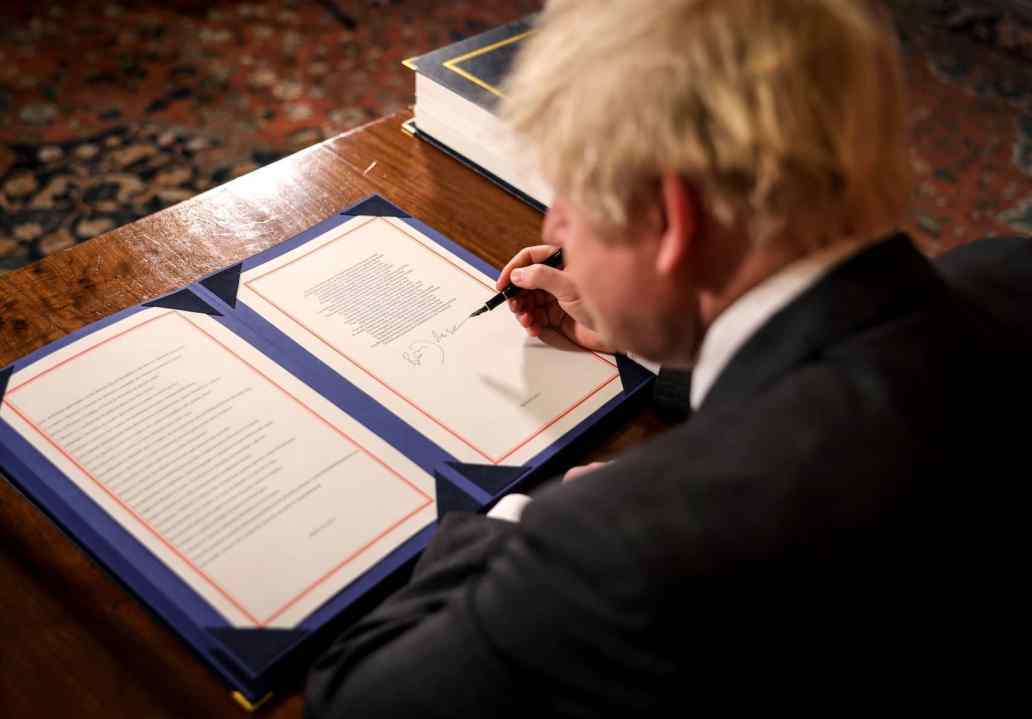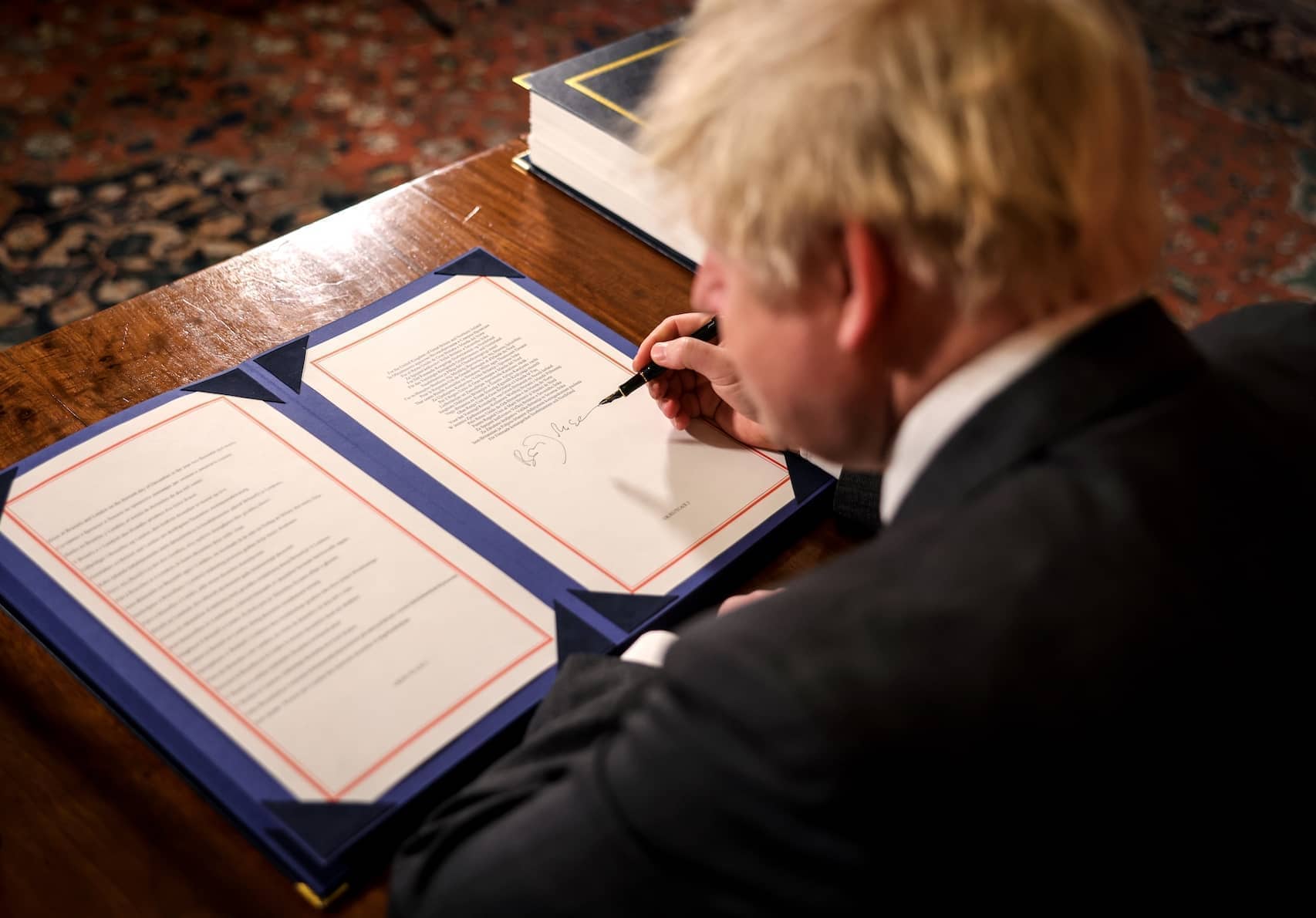The UK is about to publish a bill that will override parts of the Northern Ireland Protocol. We are doing this unilaterally – the EU doesn’t want us to do it, but we’re going to do it anyway. Surely that means we’re about to breach international law?
It’s worth quickly going over why this is happening. The EU wanted to protect its common market, and no one wanted a border down the island of Ireland, so a trade border was placed in the Irish Sea. That has created trade friction between two constituent parts of the United Kingdom. Unionists are unhappy with that arrangement. And unhappy Unionists have led to the suspension of power-sharing at Stormont and therefore a problem for the Good Friday Agreement. So, the UK feels it has to act. But – ah! – by acting in this way, we go against an international agreement (the EU doesn’t want us to do this, remember). Is the UK, therefore, breaking international law?
No. Because there is no land where international law exists. UK laws, like all national laws, exist in a jurisdiction. They are enforced by police officers and judges. Treaties are more like agreements: ‘We promise to do this if you do that’. But on their own, that isn’t the same as law – even if the treaty has arbitration systems built into it. Those systems are lore, not law. They’re a law-like system of rules that must be internally consistent.
UK laws, like all national laws, exist in a jurisdiction. They are enforced by police officers and judges. Treaties are more like agreements
The land of international law is a fantasy place. A couple of years ago, I wrote about how we sent the Geneva Convention of the Sea to this fantasy place in 1968. Where in the lore of international law it presumably lives on, as some wrathful ghost being terribly miffed that we ignore it. Wherever it is, it doesn’t matter as it’s not law.
What matters in the real world is how your legal system interacts with international law. Ours has clear rules and hinges on the word ‘incorporated’. Incorporated means put into our law by way of an Act of Parliament. Once we do that, we pull it out of the pretend realm of international law and make it real. Snap – in a second international law becomes actual, enforceable law.
There must be countless old treaties bobbing about in the land of international law. In the popular musical Hamilton, there is a rap battle about the fledgling United States daring to break international law. Quite rightly the hero points out that the treaty in question was signed with a now headless king and that it’s nonsense to suggest it lives on. Reader, they ignore the treaty.
Look at when we were part of the European Union. In order to make EU law real here, we had to incorporate it into our statute book – as Lord Denning explained in 1973. That was recognised in a case we now call Miller 1. And it is something that the Supreme Court has confirmed again: ‘It is a fundamental principle of our constitutional law that an unincorporated treaty does not form part of the law of the United Kingdom’.
That’s where people get confused. If it isn’t part of our law, you can’t ever be breaking the law. You might be breaking a promise – something in a treaty – but we’ve already established these aren’t the same things. It might be the law in some country somewhere that men may not sit on chairs – if we sit on chairs here, we aren’t breaking any law. We don’t break the law even if the Prime Minister has signed a document promising that British men won’t sit on chairs. We only break the law if parliament has passed an act making the sitting on chairs by men an offence in this jurisdiction.
So if you care, as many do, about whether our government is acting legally in relation to a treaty, then your key word is ‘incorporated’. If the government breaks incorporated treaties, then by all means say they are acting illegally. But if the treaty is unincorporated, it’s not law and if you care about law, there’s nothing to get excited about.
The Protocol is currently incorporated. So to change it Boris must use the House of Commons – if he didn’t he’d be breaking the law. But what is law will change into whatever that statute says it is. What matters to us is this incorporation.
That’s the line the law draws. I suspect every legal system draws the same line really – they will certainly need to draw a line. Because the alternative is to recognise hundreds if not thousands of ghost treaties. Lots of which probably contradict each other. The phrase ‘in international law’ invokes then, not law, but lore. A law-like system of rules that must be internally consistent. This distinction needs to be much more widely understood. But even under this lore of international law, it is clear that not every treaty is alive forever – that headless king is not still haunting America.
Despite not needing to as law, the government has promised their plan will follow this law-like system and there are clearly ways that can happen. Commentators mocking that are only demonstrating their lack of imagination.







Comments